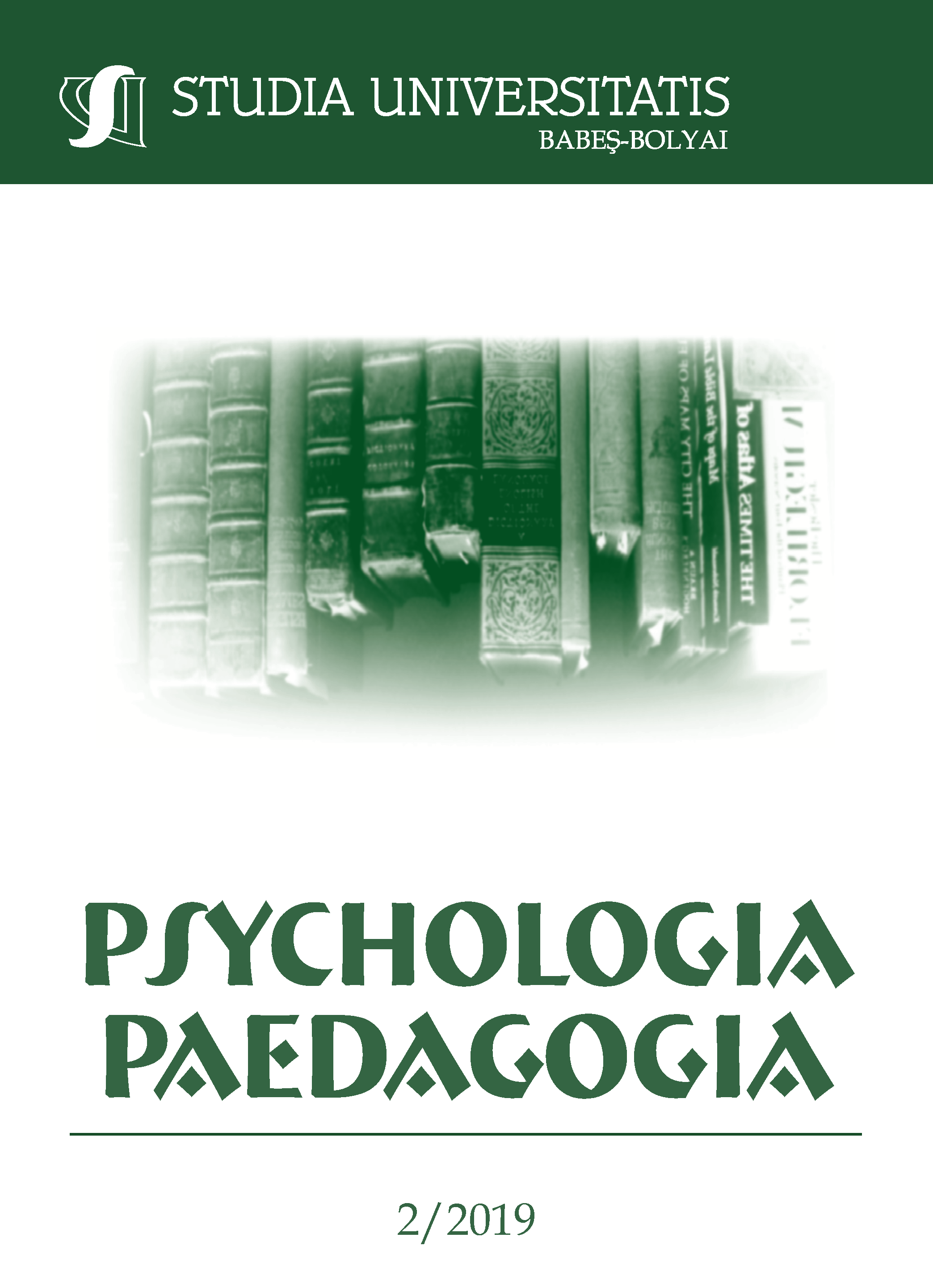THE IMPORTANCE OF EXPERIENTIAL LEARNING IN THE DEVELOPMENT OF THE XXIᵗʰ CENTURY SKILLS ON TEENAGERS
DOI:
https://doi.org/10.24193/subbpsyped.2019.2.07Keywords:
experiential learning, teenagers, XXIth century skills, good practices for trainers.Abstract
This article examines the concept of experiential learning and its relevance in the context of developing 21st century skills. The first part of the article offers conceptual clarifications, highlights the latest education initiatives for development and examples of best practices of experiential learning, according to the visions of John Dewey, Kurt Lewin, Carl Rogers and David Kolb. Also, the key skills of the 21st century are clarified, in the light of the 2011 National Education Law, the Council of the European Union and the World Economic Forum. The online study presented at the end of the article shows that there is a lively interest in Romanian research on the teenage development through experiential learning methods and a need for youth development projects to be launched throughout the country. This paper was developed with the aim of supporting educational agents to initiate and develop initiatives based on experiential learning, which will lead to the development of 21st century skills among teenagers, with beneficial effects throughout life.References
Ardelean, A., Mândruţ, O. (2012). Didactics of forming skills, in “Vasile Goldiş” University Press Arad. Available at: https://www.uvvg.ro/cdep/wp-content/uploads/2012/06/Didactica-competente-final.pdf. [Romanian].
Chiş, V. (2005). Contemporary pedagogy. Pedagogy for skills, Cluj-Napoca, Science Book House Publishing House. [Romanian].
Chiş, V. (2014). Foundations of Pedagogy, topic for students and teachers, Cluj-Napoca: Eikon Publishing House. [Romanian].
Dewey, J. (1966). Democracy and education: an introduction to the philosophy of education, The Free Press Publishing House.
Dewey, J. (1992). Foundations for an education science, Didactic and Pedagogic Publishing House [Romanian].
Forsyth, D.R. (2009). Group Dynamics, Seventh Edition, University of Richmond, Cengage Learning Publishing House.
Frumos, F. (2008). Didactics: Cognitive foundations and elements, Iaşi: Polirom Publishing House. [Romanian].
Gliga, A. (2015). Education for development in Europe: assessment of efficiency of the project GLOCAL TOUR implemented in 4 EU state members, Transylvanian Magazine of Administrative Sciences 1 (36)/, pp. 51-67, Available at: https://pdfs.semanticscholar.org/e515/63997a67dfe7e3feec913009024a499b732f.pdf . [Romanian].
Ionescu, M. (1998), Education and its dinamics. Bucharest: Education Tribune Publishing House. [Romanian].
Kolb, D.A. (1984). Experiential Learning: Experience as the Source of Learning and Development, Editura Pearson FT Press.
Lewin, K. (1959). Psychologie dynamique: les relations humaines, Editura Presses Universitaires de France.
Penido, A. (2018). Many students are unengaged in their learning—how schools can create opportunities for participation. Available at:
Răduţ-Taciu, R., Aştilean, M. (2011). Management of Human Resources in Pre-school Education, Cluj-Napoca, Science Book House Publishing House. [Romanian].
Robinson, K., Aronica, L. (2015). Creative schools. Revolution from education basis, Public Publishing House. [Romanian].
Rogers, C.R. (1942). Counseling and psychotherapy: newer concepts in practice. Editura Houghton Mifflin Company.
Rogers, C.R. (1983). Freedom to Learn for the 80’s. Charles E. Merrill Publishing Company, A Bell & Howell Company.
Schwab, K. (2016). The Fourth Industrial Revolution: what it means, how to respond. Available at: https://www.weforum.org/agenda/2016/01/the-fourth-industrial-revolution-what-it-means-and-how-to-respond/.
Winthrop, R., Barton, A., McGivney, E. (2018). Leapfrogging Inequality. Remaking Education to Help Young People Thrive. Diponibil la:
https://www.brookings.edu/book/leapfrogging-inequality-2/.
***, Skills of XXIth century (2016). Available at: https://www.weforum.org/agenda/2016/03/21st-century-skills-future-jobs-students/.[Romanian].
***, Experience Based Learning Systems, LLC (EBLS). Available at https://learningfromexperience.com/about/.
***, Law on National Education. Available at: http://oldsite.edu.ro/index.php/articles/14847. [Romanian].
***, Litteris et Virtuti. Education through teenagers’ eyes (2012). Available at: https://www.smark.ro/articol/24383/litteris-et-virtuti-educatia-prin-ochii-tinerilor-2012-un-nou-studiu-smark . [Romanian].
***, Recommendation of the European Union Council from 22 May 2018 regarding key competences for lifelong learning (Text with relevance for SEE), (2018/C 189/01) https://eur-lex.europa.eu/legal-content/RO/TXT/PDF/?uri=CELEX:32018H0604(01)&from=LT. [Romanian].
***, What are the 21st-century skills every student needs? Available at: https://www.weforum.org/agenda/2016/03/21st-century-skills-future-jobs-students/.
Downloads
Published
How to Cite
Issue
Section
License
Copyright (c) 2019 Studia Universitatis Babeș-Bolyai Psychologia-Paedagogia

This work is licensed under a Creative Commons Attribution-NonCommercial-NoDerivatives 4.0 International License.





